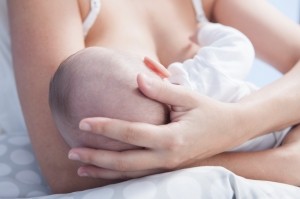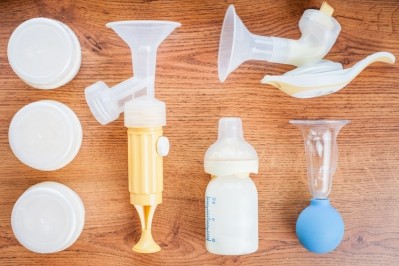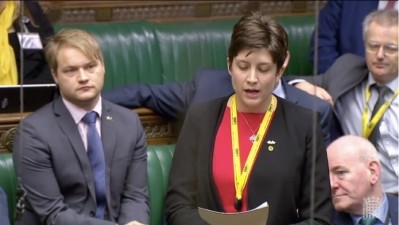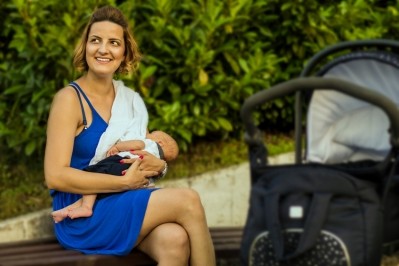Romania goes beyond EU minimum with infant formula restrictions
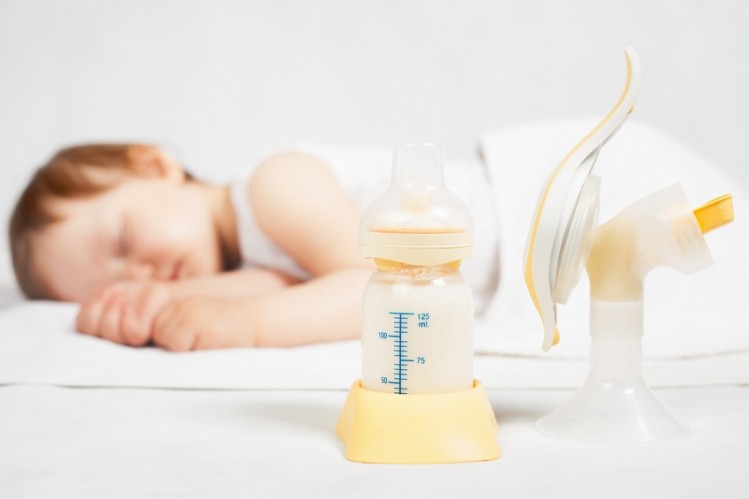
The 10-page draft also outlines strict limits for advice given by health workers on breastfeeding and formula as well as warnings manufacturers must put on pack.
Breaching these new rules could constitute a criminal offence, and fines cited in the decree reach up to 100,000 RON (€22,216).
Under EU law member states are free to adopt national-level rules on infant and follow-on formula provided they are “justified and proportionate” and do not conflict with EU law.
Romania has submitted its draft to the EU community where its progress may end as it goes above and beyond current EU law on infant and follow-on formula.
The EU standard
Current EU law forbids the marketing of infant formula for children aged up to six months altogether.
Follow-on formula must carry the statement that the product is only suitable for particular nutritional use by infants over the age of six months as part of a diversified diet, and that it is not a substitute for breast milk during this first six months of life.
The same EU law leaves it to member states to “give effect” to principles and aims of the much-cited International Code of Marketing of Breast-milk Substitutes, written by the World Health Organisation (WHO) back in 1981.
WHO and UNICEF recommend exclusive breastfeeding for the first six months of life followed by the introduction of appropriate complementary feeding alongside breastfeeding for up to two years of age or beyond.
This is in accordance with the WHO’s International Code of Marketing of Breast-milk Substitutes, which aimed to counter aggressive and inappropriate marketing of breast-milk substitutes and reverse declining breastfeeding rates.
The mystery Maltese precedent
However a 2014 attempt from Malta to go beyond this EU standard with a national law was thwarted by the notification process.
The Commission said it issued a detailed opinion and comments – which were not publicly published – regarding “some aspects” of the Maltese draft.
It told us it has had no news from the Maltese government on the legislation since it gave its feedback and UK-based breastfeeding campaign group Baby Milk Action and its parent group the International Baby Food Action Network, said Malta had backtracked to the basic EU law after the challenge.
BMA and IBFAN policy director and long-time critic of the formula industry Patti Rundall told us she would be watching whether the Commission challenged the Romanian decree.
She welcomed the "stand" from Romania and urged other countries to follow suit.
“Governments have every right to go further than the minimum stated in legislation - indeed they have a duty under the Convention on the Rights of the Child to protect children’s rights to the highest level of health.”
Rundall said the Romanian decree was on solid legal ground with a recent WHO report co-authored by IBFAN spelling out that all breast milk substitutes including follow-on formula were covered by the Code and therefore should not be promoted.
Breastfeeding rates
The same report said laws protecting breastfeeding were “inadequate” in most countries.
Richer countries lagged behind poorer ones.
The proportion of countries with comprehensive legislation in line with the Code was highest in the WHO South-East Asia Region (four out of 11 countries), followed by the African Region (14/47 countries), the Eastern Mediterranean Region (6/21), the Region of the Americas (8/35), Western Pacific Region (4/27) and the European Region (3/53).
Romania has been earmarked as a country of particular concern for breastfeeding rates.
According to the UN’s children’s charity UNICEF, only 12.6% of infants in Romania are exclusively breastfed for the first six months of life.
So what does the Romanian decree actually say?
The draft decree bans:
- All advertisement and promotion of formula products for children up to two years of age
- All sample and discount promotion of infant nutrition products for children up to two years of age
- Product placement or sale within the healthcare system
- Sponsorship or donations within the health care system as a promotion method by manufacturers or distributors
- Images on packaging that idealises the use of formula products, or suggests it is superior to breastfeeding
- The terms ‘humanised’, ‘mother formula’ or other similar terms
Healthcare workers will also be obliged to:
- Educate women separately about breastfeeding and formula products
- If breastfeeding is not possible, clearly explained the risks posed by incorrect preparation or use of formula products
- Give details of any sponsorship from formula firms for study or research grants or to attend professional conferences, which will then be displayed on their institution’s website for three years
Warning labels
Products will also have to carry the warnings typical on infant formula products: "Very important: Breast milk is the best food for your baby. It is recommended that babies up to six months old be exclusively breast fed.”
The decree also states: “Information provided by manufacturers or distributors to health workers and pharmacists with regard to one or more targeted products may only be of a scientific or practical nature for each individual product, and must be clear, detailed and correct, proven and supported.”
If OK'd by the European community, the law will come into force six months after its publication in Romanian law books. There will be a grace period for manufacturers to sell through old stocks.
Industry group Specialised Nutrition Europe (SNE) did not respond to our requests for comment in time for the publication of this article.
However in the past the group has held that the European infant formula industry does not need tighter regulation than that already in place.
